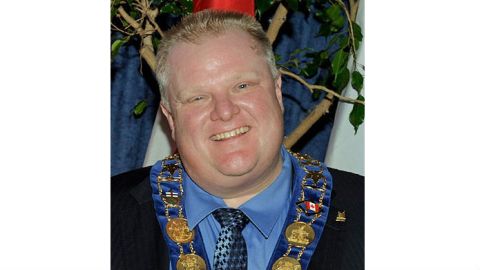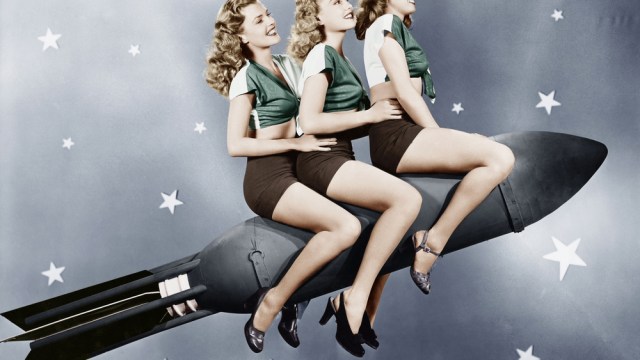Toronto Mayor Brings Unwanted Attention
Toronto is tasked with navigating the Scylla and Charybdis of finding a leader who respects the value of a taxpayer dollar, but who also doesn’t smoke crack. It should not be so difficult.

Sign up for The Nightcrawler Newsletter
A weekly collection of thought-provoking articles on tech, innovation, and long-term investing from Nightview Capital’s Eric Markowitz.
This article originally appeared on The Daily Caller. You can read the original here.
Sometime during my adolescence in my hometown of Toronto, municipal do-gooders began referring to the place as a “world class city.” The Canadian self-consciousness of the appellation was immediately apparent to critics, who pointed out that, say, Paris doesn’t bang on about being “world class” because it’s, y’know, Paris.
To wit, if you have to say you are a “world class city,” you probably aren’t.
Even so, Toronto is a splendid spot, the 4th-largest city in North America, and has plenty of which it can be proud. While it has been almost 50 years since Toronto won a Stanley Cup (that’s hockey), it boasts a couple of World Series’ and some Grey Cups (that’s football, played properly). It also has an NBA team, named during the heady 90’s when it was assumed people would never, ever cease to be fascinated by Jurassic Park.
At last, however, Toronto is receiving the attention it craves, but for none of the reasons it wanted. City fathers (or “city parents” as they would likely prefer to be called) wish they were being recognized for their nonpareil recycling programs, or for banishing automobiles from the roads in favor of streetcars and bicycle lanes, or for a flawless, carbon-neutral hosting of the Olympics (they have had to make do with something called the Pan Am Games instead).
But no, the eyes of the world are fixed, albeit briefly, upon this sleepy Hogtown (as Toronto was known well before this current pig-fest) because its mayor has admitted to smoking crack.
To the uninitiated, it may seem incredible that a character like Rob Ford could have been elected mayor in the first place. But, as urban dwellers across North America are aware, modern cities are overtaxed and hyper-regulated, with precious few leaders willing to be frugal with public funds and prioritize the prosaic needs of municipal governing, such as ensuring snow gets cleared and trash gets collected. In Toronto, the usual parade of horribles toward the mayor’s chair consists of tearful, lefty, bike helmet weenies who make New York’s Bill de Blasio look like Edmund Burke.
In this context, Ford was a welcome contrast. Since winning about half the vote in a crowded field in 2010, Ford has been the bete noire of the city’s leftists (essentially, the half who didn’t vote for him). Unable to claim his overwhelming victory was illegitimate, they have obsessed over and magnified his failings, real and perceived.
I recall attending a home game of Toronto’s NBA thunder-lizard squadron with a prominent liberal journalist pal a couple years back. Between educating me on player biographies and lamenting that they don’t call traveling anymore, he peppered me with questions about my feelings on Mayor Ford. I mostly shrugged in response and my left-wing interlocutor was flabbergasted that I was not as preoccupied and outraged by the man as he was.
At that point, while we could agree Ford’s bombastic style and nose-painting were a bit much, I never considered limited-government reforms at City Hall worthy of hyperventilation. In fact, I agreed with them. And, like many observers of the media, I am familiar with the phenomenon of journalists lambasting someone whose ideology they despise, while lionizing lightweights who share their values (example: George W. Bush is smarter than Barack Obama – discuss).
But smoking crack, lying about it, then claiming victimhood while clinging to your job like grim death are several bridges too far.
In May of 2013, the Toronto Star published explosive reports of a video showing Ford smoking at a known crack house. Things got very ugly, very quickly. Ford denied the allegations, saying he had not seen the video and it did not exist. During the intervening months, accusations of perfidy and harassment were hurled between both sides until, last week, Toronto’s Police Chief Bill Blair stepped forward to corroborate the Star’s claim.
Specifically, Blair says that in the course of a criminal investigation of which Ford was a target, police have obtained video footage, “consistent with what has been described in the media.”
Now, confronted with this powerful testimony, Ford allows that he “may” have smoked crack, “in one of my drunken stupors.”
Ford’s Homer Simpson, “I thought the cop was a prostitute” defense should be plainly problematic. The subterfuge is, in essence, “Sure, I may have smoked crack but, in fairness, I only did so because I had gotten so knee-walking plastered, as you do, that I didn’t know what I was up to.” Oh, well then.
In a press conference this week, Ford lamented his misfortune and said he would not wish for anyone to endure what he has had to go through. Apart from the egregious conduct itself, this attitude of Ford’s is perhaps most troubling – as though his difficulties were some disembodied quirk of fate, rather than the result of his own behavior.
Some recent polls have shown a rise in Ford’s approval ratings, likely owing to sympathy among those who feel he has been hounded by the press. These people are correct, up to a point.
He’s “only human” and “a man of the people,” Ford’s defenders insist. These claims are true, but irrelevant.
Botching a speech, snapping at a constituent – these are the all-too-human mistakes of a prominent politician. We’re none of us perfect, but Ford’s conduct exceeds the foibles of an overworked public servant, and breaks the boundaries of liberal media bias. How many of you readers would keep your jobs after behaving in this way? (Marion Barry, you are excused from this question, sir).
Nevertheless, Ford insists he will stay on, and even seek re-election in 2014, evincing that even small-government politicians can give in to the conceit that they are somehow irreplaceable.
Toronto is tasked with navigating the Scylla and Charybdis of finding a leader who respects the value of a taxpayer dollar, but who also doesn’t smoke crack. It should not be so difficult.





